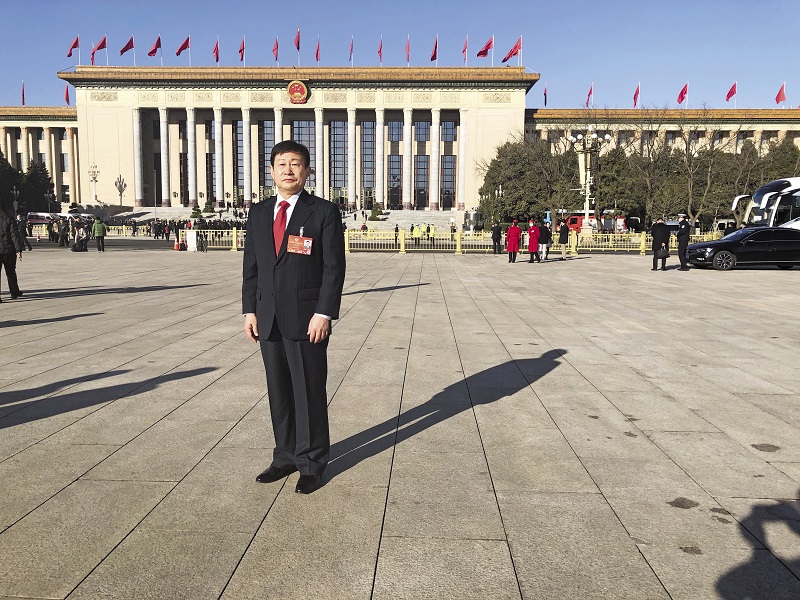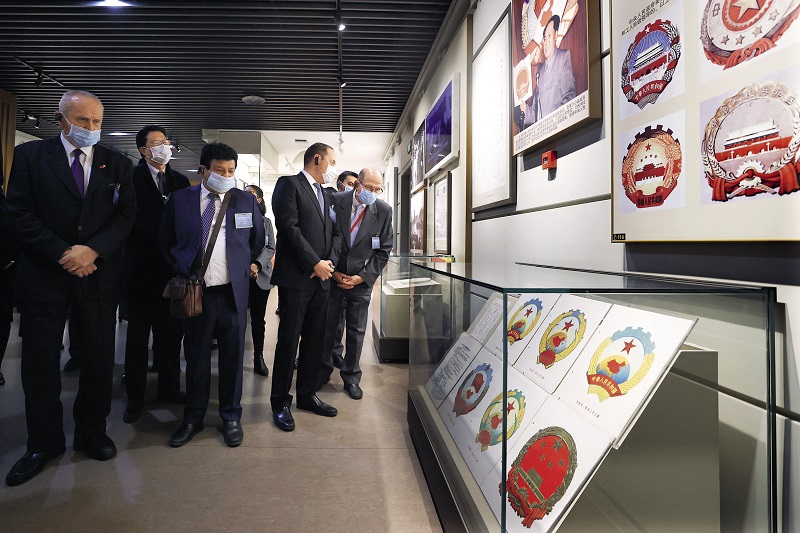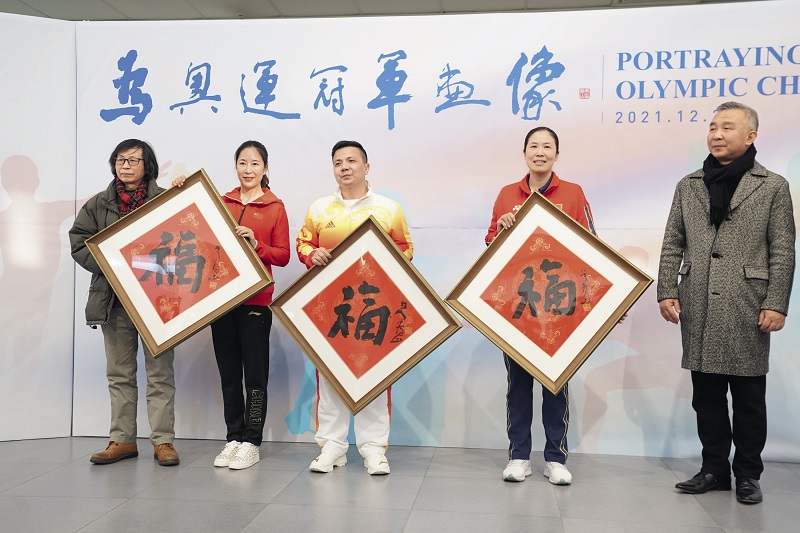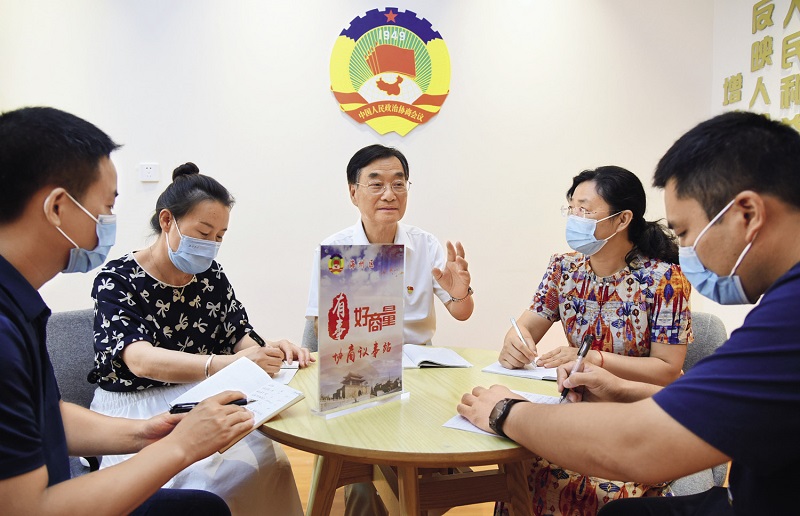Wang Maohu, a member of the 13th CPPCC National Committee, elaborating on his views of CPPCC’s measures for democratic deliberation and proposal improvement, as well as the duties of members in conducting political consultation based on his own experience.

Wang Maohu, a member of the 13th CPPCC National Committee.
Serving as a key mechanism for multi-party cooperation and political consultation under the leadership of the Communist Party of China (CPC), the first plenary session of the Chinese People’s Political Consultative Conference (CPPCC) was successfully held in Beijing prior to the founding of the People’s Republic of China on October 1, 1949. During 73 years of exploration and practice in political consultation and building consensus, the CPPCC has focused on the core tasks of the CPC and the Chinese nation, and followed the main themes of unity and democracy, thus constituting a key part of the whole-process people’s democracy.
Right before the start of the fifth session of the 13th CPPCC National Committee, Wang Maohu, member of the 13th CPPCC National Committee and deputy editor-in-chief of China Today under China International Communications Group (CICG), spoke exclusively to China Today, and elaborated his views on CPPCC’s measures for democratic deliberation and proposal improvement, and also the members’ duties on political consultation in light of his own participation.
China Today: The CPPCC is an important channel for socialist consultative democracy and an institution designed with Chinese characteristics. The system has been continuously improved, performing the three functions of political consultation, democratic supervision, and participation in and deliberation of state affairs. How does the CPPCC conduct democratic deliberation under new situations?
Wang Maohu: The CPPCC has been in existence for over 70 years. Especially since the 18th National Congress of the CPC, it has carried out consultation with a focus on reform, development, and stability, pooling wisdom from all sectors of society to achieve the prosperity of the country, the rejuvenation of the Chinese nation, and the happiness of the people.
First of all, the issues discussed by CPPCC members in recent years have mostly revolved around China’s major development strategies and people’s immediate concerns, making contributions to decision-making on state policies, economic and social development, and people’s livelihood. As a major target of building a moderate prosperous society, which was China’s first centenary goal, lifting all the rural poor out of poverty was of great significance. The 13th National Committee of the CPPCC convened several conferences to discuss poverty alleviation. For instance, we discussed eliminating extreme poverty and establishing relevant long-term mechanisms in 2018 and 2020. At the special-topic meetings held during the period of 2019-2021, issues related to such fields as public and cultural services in rural areas, consolidating the achievement of poverty alleviation, and pursuing rural vitalization were discussed.
Second, the working mode for CPPCC members has kept up with the times, further supporting the fact that the consultation process truly reflects people’s aspirations and interests. In August 2018, a mobile app developed by the CPPCC National Committee was officially launched. Members can easily follow ongoing consultative activities, discuss major issues, submit proposals and share information about public concerns and reactions, greatly enhancing members’ enthusiasm and promptness on political deliberation. In addition to this, online meetings have been expanded. From October 2018 to the end of 2021, 14 online conferences were successfully held, with members from all sectors of society and regions having conducted dialogues through mobile phones and computers, fully realizing the great potential of the CPPCC as a special consultative mechanism.
Third, all sectors of society are involved in the discussion, coalescing wisdom and strength from all parties. The CPPCC National Committee has organized members, experts, relevant officials, and representatives from citizens to jointly discuss policies. For instance, at the symposium in May 2019, many scientists pointed out the problems faced by the country in the innovation-driven development, such as the inadequate national financial system for the development of science and technology and lack of qualified scientific talent. At another meeting in April 2020, scholars, lawyers, and relevant officials from several ministries jointly offered suggestions for the cultivation of high-quality legal service personnel. In this way, they have responded to concerns from all sectors of society with a wide range of deliberations.
Fourth, the results of consultations have been remarkable, promoting democratic and scientific decision-making. For example, in 2019, the CPPCC National Committee issued an investigative report on building roads in rural areas. Later, the Ministry of Transport took the lead in establishing a consultative mechanism to analyze the opinions and give advice. This helped to move the work forward in the development of rural roads.

Latin American and Caribbean ambassadors visit the exhibition themed the glorious achievements of the CPPCC at the Auditorium of the CPPCC National Committee in Beijing on October 21, 2021.
China Today: In 2018, the Committee on Proposals of the CPPCC issued an opinion on proposal improvement, making clear requirements for improving the quality and efficiency of the proposals. What are your thoughts on its operation in recent years?
Wang Maohu: Being the regular, basic, and overall function of the CPPCC, making proposals is the most important, direct, and effective way for its members to perform their duties, and also the manifestation of its connection with the people. Quality is key to a proposal, and it is related to the overall situation of the proposal work and even the work of the CPPCC.
First, the working system of processing proposals has been continuously improved. The CPPCC National Committee has amended related regulations, set up selection criteria for proposals, established a mechanism to supervise key proposals by the leadership, and launched a mechanism for regular visits to political parties so as to improve the quality of proposals and guarantee an important mechanism for practicing whole-process people’s democracy.
Second, the filing and review work have adhered to the problem-oriented and quality-oriented approach. Since the outbreak of COVID-19, to meet the requirements of epidemic prevention and control as well as business resumption, the CPPCC National Committee has established a specific fast lane to handle the imperative proposals and send them expediently to relevant departments, offering a useful reference to the formulation of policies and measures relating to COVID-19, the public health system, and work resumption.
Third, in processing proposals, great importance has been attached to consultation and exchange. For instance, when dealing with a proposal related to the translation of political terms in 2018, the CPPCC National Committee, together with proposers and related departments, jointly established a consultative mechanism, promoting in-depth exchanges between proposers and related departments. On this platform, CPPCC members, experts, heads of publishing houses, and scholars from higher-learning institutions have held several consultations, offering recommendations on translation standards and talent cultivation.

In order to welcome the XXIV Olympic Winter Games, an activity themed portraying the Olympic champions is held at the National Art Museum of China in Beijing on December 29, 2021.
China Today: Based on your work as a CPPCC member, could you please talk about how the country has carried out political consultation and built consensus?
Wang Maohu: On the one hand, CPPCC members should conduct research and survey in their familiar fields to provide practical and targeted suggestions. In 2020, in light of my experience in international communications and the needs of foreign audience, I visited and carried out research with video teams and domestic video platforms that are influential overseas, and then submitted a proposal regarding how to improve China’s rural “we-media” platforms so as to better present the image of Chinese farmers, rural areas and agricultural sector. Later, the Chinese Association for Radio, Film & TV Exchanges and Reuters jointly produced a video series based on poverty alleviation which was also released on foreign platforms, further supporting the spread of high-quality original media productions. In 2021, with regards to the upcoming Beijing 2022 Olympic Winter Games, I also raised a proposal intended to enhance the publicity of China’s winter sports and the Winter Games-related culture. Combined with trending topics during the Winter Olympics in February 2022, I followed up and discussed plans with relevant departments and offered more targeted and timely suggestions.
On the other hand, the narrative should grasp the subtleties of life and truly reflect people’s needs and concerns. In 2018, I conducted surveys and analysis and presented proposals on disputes involving pet dogs in communities. In 2019, along with members of academic community, I investigated some educational institutions, learning about the situation of after-school tutoring market by interviewing relevant managers, students, and teachers. Later, we presented the first-hand information and proposals about the management of off-campus institutions.

Dong Hanqing, member of Lianyungang Municipal Committee of the CPPCC, discusses with local officials the management of after-school children at a consultation room in Haizhou District, Lianyungang City, Jiangsu Province on August 26, 2021.
China Today: This year marks the start of the new journey towards the second centenary goal of building China into a great modern socialist country in all respects. What’s the focus of your work in 2022?
Wang Maohu: The successful hosting of the XXIV Olympic Winter Games in 2022 marks that Beijing has become the world’s first city to host both the Summer and Winter Olympics, highlighting China’s new image in the world. Next, I will follow up Beijing’s improvement in urban competitiveness and promotion of China’s international influence and voices, and then provide practical suggestions on international communications in an innovative way in the post-Olympic period. Moreover, in light of relevant policies on traditional Chinese medicine (TCM) and elderly care services in China’s 14th Five-Year Plan (2021-2025), I am planning to carry out research with related experts and citizens in different communities and hospitals across the country and discuss the issues through online platforms and offline meetings, thus to make suggestions to further improve the mechanism for elderly care.